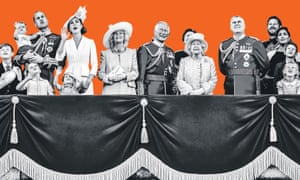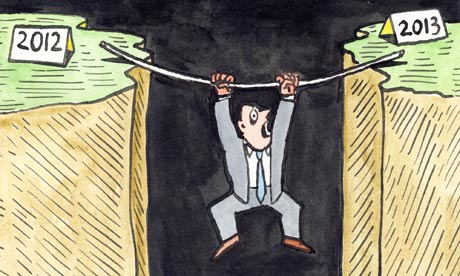Nadeem Paracha in The Dawn

Across the 20th century, intellectuals played an important role in political parties and governments, both democratic and authoritarian. According to Richmond University’s Professor of Politics Eunice Goes, intellectuals perform several roles in the policy-making process.
They help politicians make sense of the world. They offer cause-effect explanations of political and economic phenomena, and diagnoses and prescriptions to policy puzzles. They also help political actors develop ideas and narratives that are consistent with their ideological traditions and political goals.
But in this century, politics has often witnessed a backlash against the presence of intellectuals in political parties and in governments. This is likely due to the strengthening of the parallel tradition of anti-intellectualism, which was always (and still is) active in various polities.
This tradition has been more active in right-wing groups. It was especially strengthened by the rise of populist politics in many countries in the 2010s. But mainstream political outfits in Europe and the US still induct the services of intellectuals, even though this ploy has greatly been eroded in the Republican Party in the US after it wholeheartedly embraced populism in 2016, and still seems to be engulfed by it.
Since the 1930s, the Democratic Party in the US has always had the largest presence of intellectuals in it. This policy was initiated during the four presidential terms of the Democratic Party’s Franklin D. Roosevelt (1932-45), during which time a large number of intellectuals were inducted. Their role was to aid the government in bailing the US out of a tumultuous economic crisis, and to develop a narrative to neutralise the increasing appeal of organisations on the far right and the far left. This tradition of inducting intellectuals continued to be employed by the Democrats for decades.
Interestingly, even though the Republican Party has had an anti-intellectual dimension ever since the early 20th century, it carried with it intellectuals to counter intellectuals active in the Democratic Party. This was specifically true during the presidencies of the Republican Ronald Reagan (1981-88) who was, in fact, propelled to power by an intellectual movement led by conservatives and some former liberals. This movement evolved into becoming ‘neo-conservatism’ during the Reagan presidencies. Britain’s Labour Party and Conservative Party have carried with them intellectuals as well, especially the Labour Party.
Some totalitarian regimes too employed the services of intellectuals in the Soviet Union, Germany and Italy. The Soviet dictator Stalin was not very kind to intellectuals, though. But intellectuals played a major role in shaping Soviet communism. Hitler’s Nazi regime had the services of some of the period’s finest minds in Germany, such as the philosophers Carl Schmitt and Martin Heidegger, the logician Rudolf Carnap, and a host of others.
They helped Hitler mould Nazism into an all-encompassing ideology. Just how could some extremely intelligent men start to both romance as well as rationalise a brutal ideology is a topic that has often been investigated, but it is beyond the scope of this column.
In Pakistan, three governments banked heavily on intellectuals to formulate their respective ideologies, narratives and economics. The Ayub Khan dictatorship (1958-69) carried scholars who specialised in providing ‘modernist’ interpretations to various traditional aspects of Islam. This they did to aid Ayub’s modernisation project. The intellectuals included the rationalist Islamic scholars Fazalur Rahman Malik and Ghulam Ahmad Parwez, and, to a certain extent, the progressive novelist Mumtaz Mufti and Justice Javed Iqbal, the son of the poet-philosopher Muhammad Iqbal. The writer Qudrat Ullah Shahab was Ayub’s Principal Secretary.
Z.A. Bhutto’s Pakistan Peoples Party (PPP) was studded with intellectuals who remained active in the party during at least the first few years of Bhutto’s regime (1971-77). These included the Marxist theorist JA Rahim who (with Bhutto) wrote the party’s ‘Foundation Papers’ and then its first manifesto. He also served as a minister in the Bhutto regime till his acrimonious ouster in 1975.
Then there was Dr Mubashir Hassan, who was the main theorist behind PPP’s concept of a ‘planned economy’. He served as the Bhutto regime’s finance minister. The intellectuals Hanif Ramay and Safdar Mir wrote treatises to counter the ideologies of the Islamists. Ramay also formulated the party’s core ideology of ‘Islamic socialism’. The lawyer and constitutional expert Hafeez Pirzada too was a founding member of the party. He was one of the main authors of the 1973 Constitution.
The Ziaul Haq dictatorship adopted the Islamist theorist Abul Ala Maududi as the regime’s main ideologue. Maududi was also the chief of the Jamaat-i-Islami (JI). Zia, when he was a lieutenant general in the early 1970s, used to distribute books written by Maududi to his officers and soldiers. Maududi passed away in 1979, just two years after Zia overthrew the Bhutto regime. But Zia continued to apply Maududi’s ideas to his dictatorship’s ‘Islamisation’ project.
Zia also had the services of the prominent lawyers AK Brohi and Sharifuddin Pirzada. Brohi and Pirzada were instrumental in formulating the murder charges against Bhutto. In his book, Betrayals of Another Kind, Gen Faiz Ali Chisti wrote that Brohi and Pirzada encouraged Zia to hang Bhutto, which he did. Pirzada also wrote oaths for judges sworn in by Zia that omitted the commitment to protect the Constitution. He would go on to do the same for the Musharraf dictatorship (1999-2008). In fact, Sharifuddin Pirzada had also served the Ayub regime.
The rise of populist politics in the second decade of the 21st century has greatly diminished the role of intellectuals in political parties and governments. This is because populism is inherently anti-intellectual. It perceives intellectuals as being part of a detested elite. Therefore, for example, one never expected intellectuals of any kind in Imran Khan’s Pakistan Tehreek-i-Insaf (PTI). This is why the nature of this party’s narrative is ridiculously contradictory and even chaotic.
However, in a January 2022 essay for The Atlantic, David A. Graham wrote that it’s not that intellectuals have vanished from political parties. Rather, due to populism’s anti-intellectual disposition, they have purposely dumbed down their ideas.
According to Graham, “This is the age of smart politicians pretending to be stupid.” If stupidity can now attract votes and save the jobs of intellectuals in parties and governments, then smart folks can act stupid in the most convincing manner. Even more than those who are actually stupid.

Across the 20th century, intellectuals played an important role in political parties and governments, both democratic and authoritarian. According to Richmond University’s Professor of Politics Eunice Goes, intellectuals perform several roles in the policy-making process.
They help politicians make sense of the world. They offer cause-effect explanations of political and economic phenomena, and diagnoses and prescriptions to policy puzzles. They also help political actors develop ideas and narratives that are consistent with their ideological traditions and political goals.
But in this century, politics has often witnessed a backlash against the presence of intellectuals in political parties and in governments. This is likely due to the strengthening of the parallel tradition of anti-intellectualism, which was always (and still is) active in various polities.
This tradition has been more active in right-wing groups. It was especially strengthened by the rise of populist politics in many countries in the 2010s. But mainstream political outfits in Europe and the US still induct the services of intellectuals, even though this ploy has greatly been eroded in the Republican Party in the US after it wholeheartedly embraced populism in 2016, and still seems to be engulfed by it.
Since the 1930s, the Democratic Party in the US has always had the largest presence of intellectuals in it. This policy was initiated during the four presidential terms of the Democratic Party’s Franklin D. Roosevelt (1932-45), during which time a large number of intellectuals were inducted. Their role was to aid the government in bailing the US out of a tumultuous economic crisis, and to develop a narrative to neutralise the increasing appeal of organisations on the far right and the far left. This tradition of inducting intellectuals continued to be employed by the Democrats for decades.
Interestingly, even though the Republican Party has had an anti-intellectual dimension ever since the early 20th century, it carried with it intellectuals to counter intellectuals active in the Democratic Party. This was specifically true during the presidencies of the Republican Ronald Reagan (1981-88) who was, in fact, propelled to power by an intellectual movement led by conservatives and some former liberals. This movement evolved into becoming ‘neo-conservatism’ during the Reagan presidencies. Britain’s Labour Party and Conservative Party have carried with them intellectuals as well, especially the Labour Party.
Some totalitarian regimes too employed the services of intellectuals in the Soviet Union, Germany and Italy. The Soviet dictator Stalin was not very kind to intellectuals, though. But intellectuals played a major role in shaping Soviet communism. Hitler’s Nazi regime had the services of some of the period’s finest minds in Germany, such as the philosophers Carl Schmitt and Martin Heidegger, the logician Rudolf Carnap, and a host of others.
They helped Hitler mould Nazism into an all-encompassing ideology. Just how could some extremely intelligent men start to both romance as well as rationalise a brutal ideology is a topic that has often been investigated, but it is beyond the scope of this column.
In Pakistan, three governments banked heavily on intellectuals to formulate their respective ideologies, narratives and economics. The Ayub Khan dictatorship (1958-69) carried scholars who specialised in providing ‘modernist’ interpretations to various traditional aspects of Islam. This they did to aid Ayub’s modernisation project. The intellectuals included the rationalist Islamic scholars Fazalur Rahman Malik and Ghulam Ahmad Parwez, and, to a certain extent, the progressive novelist Mumtaz Mufti and Justice Javed Iqbal, the son of the poet-philosopher Muhammad Iqbal. The writer Qudrat Ullah Shahab was Ayub’s Principal Secretary.
Z.A. Bhutto’s Pakistan Peoples Party (PPP) was studded with intellectuals who remained active in the party during at least the first few years of Bhutto’s regime (1971-77). These included the Marxist theorist JA Rahim who (with Bhutto) wrote the party’s ‘Foundation Papers’ and then its first manifesto. He also served as a minister in the Bhutto regime till his acrimonious ouster in 1975.
Then there was Dr Mubashir Hassan, who was the main theorist behind PPP’s concept of a ‘planned economy’. He served as the Bhutto regime’s finance minister. The intellectuals Hanif Ramay and Safdar Mir wrote treatises to counter the ideologies of the Islamists. Ramay also formulated the party’s core ideology of ‘Islamic socialism’. The lawyer and constitutional expert Hafeez Pirzada too was a founding member of the party. He was one of the main authors of the 1973 Constitution.
The Ziaul Haq dictatorship adopted the Islamist theorist Abul Ala Maududi as the regime’s main ideologue. Maududi was also the chief of the Jamaat-i-Islami (JI). Zia, when he was a lieutenant general in the early 1970s, used to distribute books written by Maududi to his officers and soldiers. Maududi passed away in 1979, just two years after Zia overthrew the Bhutto regime. But Zia continued to apply Maududi’s ideas to his dictatorship’s ‘Islamisation’ project.
Zia also had the services of the prominent lawyers AK Brohi and Sharifuddin Pirzada. Brohi and Pirzada were instrumental in formulating the murder charges against Bhutto. In his book, Betrayals of Another Kind, Gen Faiz Ali Chisti wrote that Brohi and Pirzada encouraged Zia to hang Bhutto, which he did. Pirzada also wrote oaths for judges sworn in by Zia that omitted the commitment to protect the Constitution. He would go on to do the same for the Musharraf dictatorship (1999-2008). In fact, Sharifuddin Pirzada had also served the Ayub regime.
The rise of populist politics in the second decade of the 21st century has greatly diminished the role of intellectuals in political parties and governments. This is because populism is inherently anti-intellectual. It perceives intellectuals as being part of a detested elite. Therefore, for example, one never expected intellectuals of any kind in Imran Khan’s Pakistan Tehreek-i-Insaf (PTI). This is why the nature of this party’s narrative is ridiculously contradictory and even chaotic.
However, in a January 2022 essay for The Atlantic, David A. Graham wrote that it’s not that intellectuals have vanished from political parties. Rather, due to populism’s anti-intellectual disposition, they have purposely dumbed down their ideas.
According to Graham, “This is the age of smart politicians pretending to be stupid.” If stupidity can now attract votes and save the jobs of intellectuals in parties and governments, then smart folks can act stupid in the most convincing manner. Even more than those who are actually stupid.




